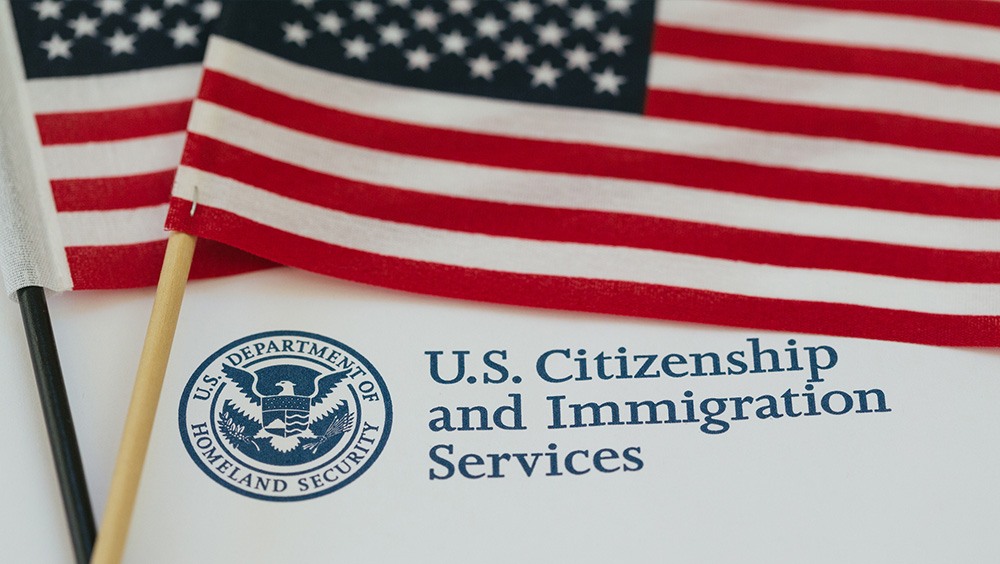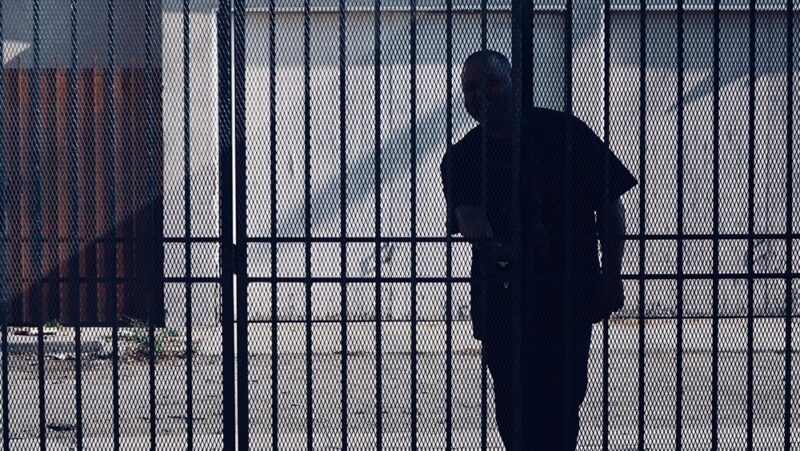Are Non-Citizens Protected by the First Amendment?

The First Amendment means government can't restrict the freedoms of religion, speech, press, assembly and petition (with some exceptions like obscenity, true threats and defamation).
But does that hold true for both citizens and other people who are in the United States, whether as students, workers, tourists or people without documentation seeking to become citizens?
All people in the U.S. – including citizens, foreign tourists and non-citizen residents – are subject to federal, state and local government laws. Even if only traveling for a short time, a person who commits a crime while vacationing in the U.S. could be arrested, tried, convicted and imprisoned. That person would have the same rights to a jury trial and a lawyer that all U.S. citizens enjoy.
But do they have First Amendment rights? Are there exceptions to freedom of speech that go beyond what is being said (like obscenity) and land on who is saying it?
Everything to know about non-citizens and the First Amendment
The question of whether non-citizens have the same freedoms of religion, speech, press, assembly and petition as U.S. citizens isn't a simple yes or no. That's partly due to the different ways people may be in the United States.
Here are important things to consider if you've ever wondered if non-citizens are protected by the First Amendment.
When non-citizens have First Amendment rights
The First Amendment begins, "Congress shall make no law...." In that sense, it shouldn't be viewed as telling people or corporations what they can do but instead as telling the government what it cannot do. So, it applies anytime a federal, state or local government tries to restrict one of the five freedoms.
Some examples:
- Religion: A tourist visiting from Canada may attend their preferred religious service and can't be prevented by the government from doing so or forced to attend a particular service.
- Speech: A musician from India may tour the country, performing songs that are critical of U.S. foreign policy without fear of being punished.
- Press: A person from Kenya studying at Indiana University may work on campus for the student newspaper and has the same free press rights as any other student journalist on campus.
- Assembly: Someone born in the Philippines with legal status under Deferred Action for Childhood Arrivals due to the age they arrived in the U.S. may participate in a public protest advocating for immigration reform.
- Petition: A refugee from Haiti may ask the government to extend the length of their temporary protected status and to make it easier for other groups to get TPS and simplify the process for citizenship.
When non-citizens may not have the full protection of the First Amendment
The Constitution does not specify whether the First Amendment applies only to citizens. Rather, those who wrote it talked about "the people." At the time the Constitution was written, many of "the people" were born outside the young country.
Whether someone is fully protected by the First Amendment can depend on their legal status in the country. Such differences include:
- Natural born or naturalized citizen
- Lawful permanent resident (green card holders)
- Authorized non-immigrant worker (such as H-2A or H-1B visa holders)
- Student visa
- Visitor visa for business or tourism
- Deferred Action for Childhood Arrivals (DACA)
- Temporary Protected Status
- Refugee or asylum seeker
- Unauthorized immigrant
When evaluating whether someone may be granted legal entry into the U.S., government officials may ask about a person's associations with other people or examine what they have said, written or otherwise done. If a person who is in the U.S. on a temporary work permit is applying for a green card or full citizenship, the kinds of groups they belong to and whether they have said or written anything that is deemed dangerous or against U.S. interests may affect their application. These people may self-censor or refrain from protesting or joining clubs or other groups out of fear it could negatively affect their immigration status.
Unauthorized immigrants and the First Amendment
While the Constitution speaks broadly about "the people," there is legal uncertainty about who that includes – and importantly, who it excludes.
The group with the most questions around whether and how the First Amendment applies to them are those with no legal status: unauthorized immigrants.
In 2015, the Department of Justice argued in a federal class action lawsuit that unauthorized immigrants do not get First Amendment protections. The DOJ reasoned that the Supreme Court previously suggested First Amendment and other protections apply only to immigrants who enter legally and who have "sufficient connection" to the U.S. To date, the Supreme Court has not ruled definitively on the question. Some legal scholars and federal judges have argued it does not apply to this group of people. Others have argued the opposite, citing the Supreme Court's Citizens United ruling that opposed restrictions on political donations based on identity rather than content.
Legal scholar and constitutional law professor Michael Kagen wrote in a 2016 Boston College law review article: "As the court explained (in Citizens United vs. FEC), the First Amendment protects the rights of marginalized people to have a voice and does not allow the government to prefer some speakers over others based on their identity."
What laws and legal cases have addressed non-citizens and the First Amendment?
The question of non-citizens and the First Amendment has come up many times in U.S. laws and before the Supreme Court, including:
Alien and Sedition Acts (1798)
These laws were part of an early attempt to stifle political debate and opposition to President John Adams, a Federalist. They're considered the first test of the First Amendment and led to multiple convictions of Adams' political rivals, especially those born outside the U.S. The Supreme Court never ruled on their legality, as they expired in 1801, but those who were convicted under the laws were pardoned by President Thomas Jefferson. He opposed the Federalists and was elected partly due to the unpopular laws.
Can the government turn away anarchist immigrants? (1904)
The Immigration Act of 1903, also called the Anarchist Exclusion Act, sought to deport immigrants with anti-government views. John Turner, from England, was one such anarchist who advocated for union organizing. Lawyers for Turner argued his views were political speech protected by the First Amendment. The Supreme Court (U.S. ex rel. Turner v. Williams) disagreed, saying Turner held views seeking to overthrow the U.S. government, and Congress has broad power to deport non-citizens. The legal standard for limiting anti-government views for U.S. citizens is higher.
Can the government deny citizenship based on religious beliefs? (1946)
Canadian James Girouard was denied U.S. citizenship because he refused an oath to fight in the military, citing his religious beliefs as a pacifist and Seventh Day Adventist. He appealed to the Supreme Court (Girouard v. United States), which ruled in his favor, saying his religious convictions protected his right not to swear to fight in the military. The court overruled a previous case from less than 20 years earlier that ruled the opposite way for a different pacifist.
Can the government deport someone over Communist Party membership? (1954)
At the height of the anti-communist era, Congress passed laws effectively outlawing the Communist Party in the country and making it legal to deport non-citizens who were members. The case Galvan v. Press centers on Robert Galvan, who was born in Mexico and came to the U.S. in 1918 at age seven. His wife and four children were all U.S. citizens. When questioned by immigration officials, he said he had been a member of the Communist Party for two years in the 1940s, before Congress passed its anti-communist laws. The government tried to deport Galvan, and lawyers appealed to the Supreme Court, citing his First Amendment right to political speech and association. The court sided with the government's decision to deport Galvan.
Justice Hugo Black, joined by William O. Douglas, dissented, saying it was possible the deportation did not violate the First Amendment. But Black disagreed that Galvan should be punished for being a member of a political party that was "perfectly legal" when he was a member.
Does the First Amendment right to receive information outweigh immigration concerns? (1972)
Known as the "Belgian Socialist" case, this Supreme Court ruling (Kleindienst v. Mandel) affirmed that while First Amendment interests are important, they do not overrule federal authority to deny people legal entry into the country. Belgian journalist Ernest E. Mandel led a socialist publication and sought entry into the U.S. to lecture at Stanford University. He was denied, and faculty and students sued, saying the government violated their First Amendment rights (though Mandel spoke to them by telephone). The court said those First Amendment concerns were valid, but the federal government has broad power to decide who is allowed to enter the U.S.
Can the government selectively enforce immigration laws based on political views? (1999)
The federal government sought to deport eight people who were members of a U.S.-based Palestinian liberation group. They were legal U.S. residents but not full citizens. The group claimed they were being targeted with selective enforcement because of their political views and appealed to the Supreme Court (Reno v. American Arab Anti-Discrimination Committee). When challenged, the government backed off the political grounds for deportation but proceeded on technical violations of immigration law. In his majority opinion, Justice Antonin Scalia addressed claims of First Amendment violations, saying, "An alien unlawfully in this country has no constitutional right to assert selective enforcement as a defense against his deportation."
The bottom line on First Amendment freedoms and non-citizens
The question of whether the First Amendment applies to non-citizens isn't easily answered with a satisfying yes or no. The Constitution leaves room to interpret that question, especially as it applies to unauthorized immigrants. The Supreme Court has not ruled in a direct way that neatly resolves it.
And the First Amendment itself does not make clear whether "the people" given the freedoms of religion, speech, press, assembly and petition are a narrow group of citizens or a broader category, some of whom come to the United States to visit, learn and work in a country that prevents governments from restricting these five freedoms.
Scott A. Leadingham is a Freedom Forum staff writer. He can be reached at sleadingham@freedomforum.org.
Can a Public School Official Legally Censor a School-Sponsored Publication, Like a Newspaper or Yearbook?
Jailed Journalism: Getting the Inside Stories of the Justice System
Related Content

